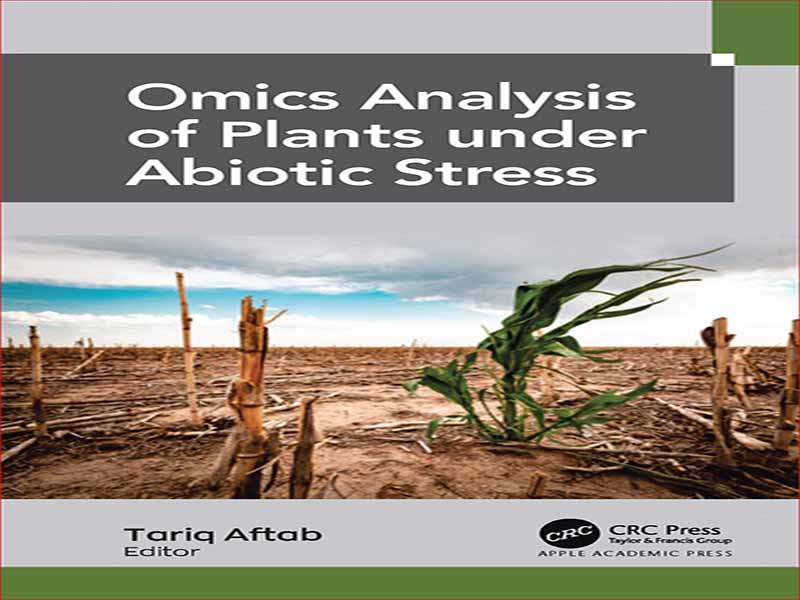- عنوان کتاب: Omics-Analysis-of-Plants-Under-Abiotic-Stress
- نویسنده: Tariq-Aftab
- سال انتشار: 2022
- حوزه: استرس غیر زنده
- تعداد صفحه: 293
- زبان اصلی: انگلیسی
- نوع فایل: pdf
- حجم فایل: 8.72 مگابایت
گیاهان با عوامل استرس زای غیر زنده مانند دسترسی کم به آب (خشکسالی)، آب اضافی (سیل / غرقابی)، دماهای شدید (سرما، سرما، یخبندان و گرما)، شوری، کمبود مواد معدنی و سمیت فلزات سنگین مواجه هستند. پیامدهای متضاد تنش های غیرزیستی باعث ایجاد تغییراتی در رشد و نمو گیاه می شود که در موارد شدید منجر به مرگ گیاه می شود.
با افزایش جمعیت انسانی، تقاضای فزاینده ای برای غذا و سایر منابع وجود دارد، اما عملکرد این محصولات با افزایش روزافزون گرمایش جهانی، تنش گرمایی، خشکسالی، شوری و سایر تنش های غیر زیستی تهدید می شود و در نتیجه امنیت غذایی را به خطر می اندازد. تلاشها برای حل این مشکلات با استفاده از روشهای اصلاح نژاد کلاسیک تاکنون بیاثر بوده است. این بیشتر به دلیل فقدان اقدامات غربالگری فشرده و قابل اعتماد و این واقعیت است که عوامل تولید توسط شبکه های پیچیده ژنی تنظیم می شوند. اگرچه روشهای ژنومی استفاده از ژرم پلاسم را ضروری میسازد که عملکرد متفاوتی را برای یک ویژگی مهم نشان میدهد، رویکردهای فنوتیپی و ژنوتیپی اغلب به خطوط گیاهی با تنوع در انعطافپذیری در برابر تنشهای غیرزیستی متکی هستند. بنابراین، درک اثرات عوامل استرس زا برای برنامه های بهبود محصول که عمدتاً بر تغییرات ژنتیکی موجود در ژنوم از طریق اصلاح متعارف تکیه دارند، ضروری می شود. علاوه بر این، پیشرفتهای اخیر در تحقیقات بیوتکنولوژیکی با استفاده از OMICS در درک عملکرد ژنها و در دسترس بودن برای کل توالی ژنوم، فرصتها و امکانات جدیدی را برای بهبود پایدار محصولات باز کرده است.
Plants are confronted by abiotic stressors such as low water accessibility (drought), excess water (flooding/waterlogging), extremes of temperatures (cold, chilling, frost, and heat), salinity, mineral deficiency, and heavy metal toxicity. The antagonistic consequences of abiotic stresses create alterations in plant’s growth and development, in severe cases leading to plant death.
With a rising human population, there is a growing demand for food and other supplies, but the yield of these crops is threatened with ever-mounting global warming, heat stress, drought, salinity, and other abiotic stresses, thereby endangering food security. Efforts to resolve these problems using classical breeding approaches have so far been ineffective. This is mostly because of a lack of intensive, reliable screening measures and the fact that yield factors are regulated by complicated networks of genes. Although genomic methodologies necessitate the use of germplasm that display a divergent performance for an attribute of significance, phenotypic and genotypic approaches often rely on plant lines with variation in resilience towards abiotic stresses. Thus, understanding the effects of stressors becomes essential for crop improvement programs that have relied mainly on the genetic variations existing in the genome through conventional breeding. Further, recent breakthroughs in biotechnological research using OMICS in understanding the functions of genes and availability to entire genome sequences have opened new opportunities and possibilities for sustainable crop improvement.
این کتاب را میتوانید از لینک زیر بصورت رایگان دانلود کنید:



































نظرات کاربران